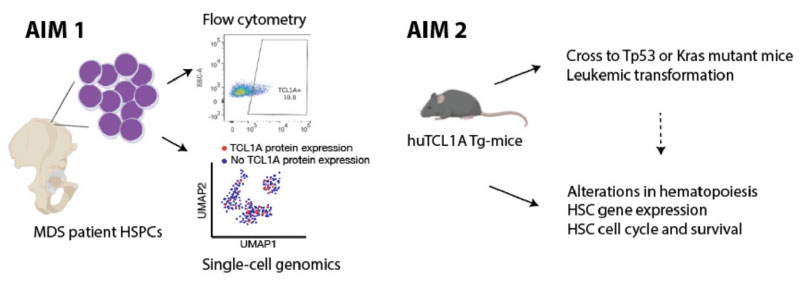
Researcher Profiles

Siddhartha Jaiswal, M.D., Ph.D.
Stanford University School of Medicine
2025 Funding Recipient
Investigation of TCL1A as a driver of myelodysplastic syndrome
Discovery Research Grant 2025
PROJECT SUMMARY
Blood stem cells give rise to all circulating blood cells in our bodies. During aging, these stem cells acquire mutations. Many of these mutations are harmless and do not cause any alteration to stem cell function. However, some of these mutations may cause abnormal expansion of the mutant cells at the expense of healthy, normal cells. This process is termed “clonal hematopoiesis”, and it is a precursor condition for blood cancers such as myelodysplastic syndrome (MDS). It has been challenging to identify the reasons why these mutant stem cells expand over time. Recently, we discovered that many of these mutations result in abnormal expression of a gene called TCL1A in the blood stem cells, and that this gene is required for the mutant cells to expand efficiently. While these studies established that clonal hematopoiesis is often dependent on TCL1A expression, it is unknown whether blood cancers that develop downstream of clonal hematopoiesis, such as MDS, are also dependent on TCL1A. In this proposal, we will ask whether TCL1A is expressed in the stem cells from patients with MDS and other blood cancers, and how these TCL1A-expressing stem cells differ from their normal counterparts. We will also model abnormal TCL1A expression in mice to see if this influences stem cell function and promotes malignancy. If this is the case, then it would justify developing drugs that block activity of TCL1A as a promising form of therapy for MDS and other blood cancers.

